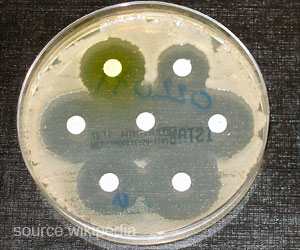The research team at Trinity College Dublin investigated how infantile amnesia is affected by forms of autism.
The maternal immune response sparked into life in response to infection during pregnancy, is known to contribute to the cause of autism in both humans and mice.
Advertisement
The Trinity neuroscientists report for the first time that this altered brain state also prevents the usual loss of memories formed during infancy.
Using a mouse model the team behind this discovery showed that exposure to maternal immune activation, where inflammation is artificially induced during pregnancy in the absence of infection to alter offspring brain development, acts as a safeguard against developmental memory loss in early life by impacting the way specialist memory cells (engrams) in the brain function.
Infantile Amnesia Unveiled in Autism
Furthermore, the study revealed that memories normally forgotten from infancy can be permanently reinstated if the correct memory engrams are activated in adults (in these experiments they used an “optogenetics” approach, which uses light to trigger specific neural pathways linked to the memory engrams of interest).
These findings imply that infantile amnesia stems from a retrieval deficiency, as early childhood memories are still stored in the adult brain but cannot normally be accessed through natural recall.
Dr Toms Ryan, Associate Professor in Trinity’s School of Biochemistry and Immunology and the Trinity College Institute of Neuroscience, is the senior author of the article published today in the leading international journal, Science Advances.
Dr Ryan emphasised the significance of these findings stating:
“Infantile amnesia is possibly the most ubiquitous yet underappreciated form of memory loss in humans and mammals. Despite its widespread relevance, little is known about the biological conditions underpinning this amnesia and its effect on the engram cells that encode each memory. As a society, we assume infant forgetting is an unavoidable fact of life, so we pay little attention to it.”
“These new findings suggest that immune activation during pregnancy results in an altered brain state that alters our innate, yet reversible ‘forgetting switches’ that determine whether the forgetting of infant memories will occur. This research holds significant implications for enhancing our comprehension of memory and forgetting across child development, as well as overall cognitive flexibility in the context of autism.”
Lead author of the study, Dr Sarah Power, who completed her PhD research in Dr Ryan’s team (now a postdoctoral researcher at the Max Planck Institute for Human Development in Berlin, Germany), said:
“Our brains’ early developmental trajectories seem to affect what we remember or forget as we move through infancy. We now hope to investigate in more detail how development affects the storage and retrieval of early childhood memories, which could have several important knock-on impacts from both an educational and a medical perspective.”
This study marks a major milestone in developmental memory research by shedding light on the connection between the retention of early childhood memories and maternal immune responses associated with Autism spectrum disorder (ASD).
It also emphasizes the adaptability of brain function in response to environmental challenges across embryonic and early postnatal development.
Reference :
- Immune activation state modulates infant engram expression across development
– (https://www.science.org/doi/10.1126/sciadv.adg9921)
Reference :
- Immune activation state modulates infant engram expression across development
– (https://www.science.org/doi/10.1126/sciadv.adg9921)
Source: Eurekalert



